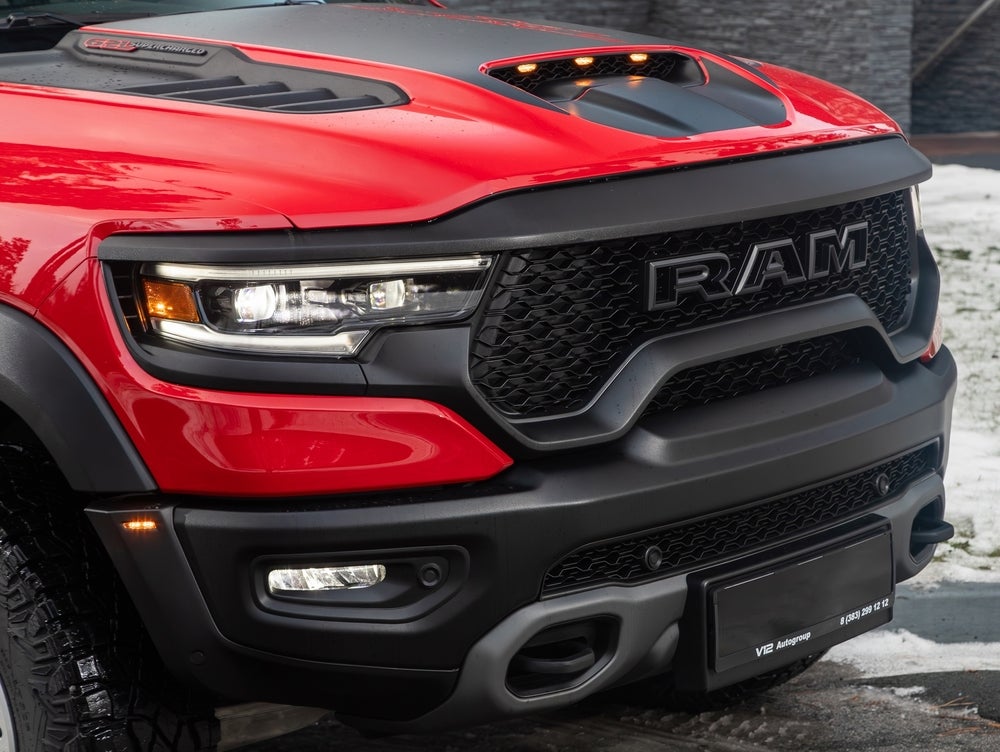Registrations of Dodge RAM pick-up trucks in Europe surged by 20% last year, according to new data analysed by Transport & Environment (T&E).
In response, a coalition of consumer, safety, and environmental groups, including T&E, has urged the European Commission to close the loophole allowing these heavily polluting and dangerous vehicles onto European roads.
The European Environment Agency data reveals that nearly 5,000 Dodge RAMs were imported into Europe in 2023, marking a 20% increase from 2022. This brings the total number of Dodge RAMs on European roads to at least 20,000.
The EU enforces stringent vehicle standards to enhance road safety and limit emissions. However, Dodge RAMs and other US pick-up trucks bypass these regulations through a loophole known as “Individual Vehicle Approval” (IVA). Originally intended for one-off adapted or specialised vehicles, such as those for the mobility impaired or emergency services, the IVA system is now being exploited to import large numbers of US pick-up trucks.
These imported vehicles are not required to comply with the 2019 EU General Safety Regulation (GSR), on-road tests for air pollution, or the EU car and van CO2 standards. CO2 emissions from Dodge RAMs range from 300g to 900g per kilometre, significantly higher than the average for newly sold cars. Additionally, safety features mandatory for all newly sold cars and vans from 7 July 2024 are not required in Dodge RAMs and other IVA-imported vehicles.
James Nix, vehicles manager at T&E, stated, “Pickup trucks like the Dodge RAM have no place on European streets. Not only are they heavily polluting, they are also deadly. We need to slim down the cars on our roads, not give a free pass to the biggest and most dangerous. The EU needs to close the loophole that allows these monsters onto our streets.”
Statistics indicate that in a collision, a pick-up truck is almost three times more likely to kill a pedestrian or cyclist than a standard car. The high bonnets of pick-up trucks further increase the risk to children, women, and the elderly.
A coalition of organisations, including T&E, the European Transport Safety Council, the European Cyclists’ Federation, consumers’ federation BEUC, Clean Cities, Eurocities, POLIS, and the International Federation of Pedestrians, is calling on the EU to close the loophole. They argue that the loophole was never intended to serve as a large-scale import channel bypassing air quality, climate, and safety regulations.
The coalition highlights the EU’s inaction in contrast to steps being taken by progressive cities such as Paris, Lyon, Grenoble, Koblenz, and Tübingen, which have implemented varying parking charges based on vehicle weight or size.









